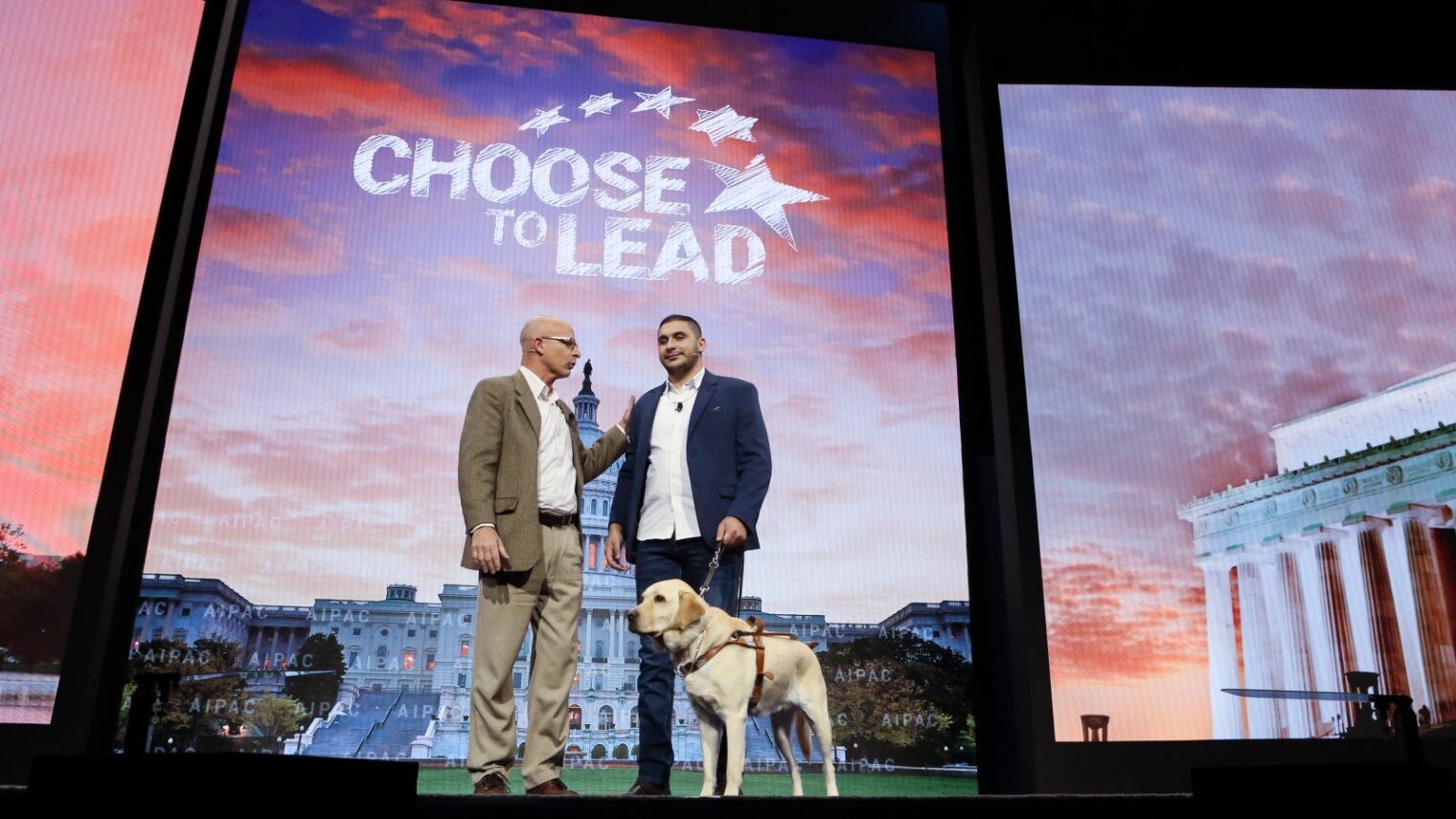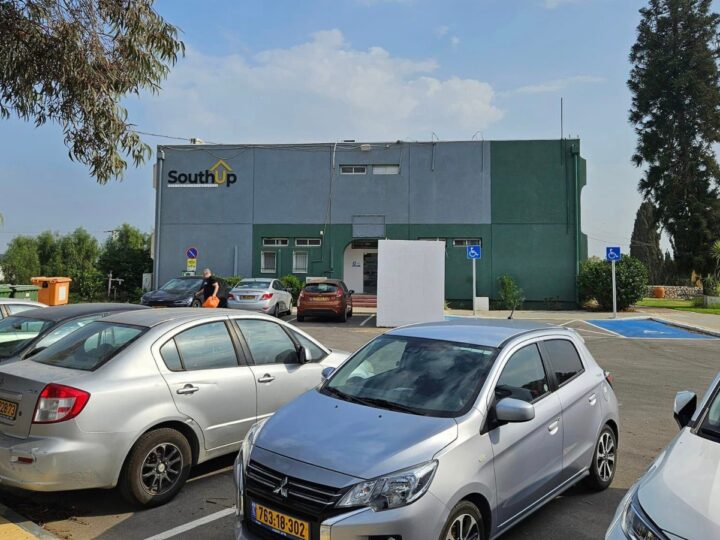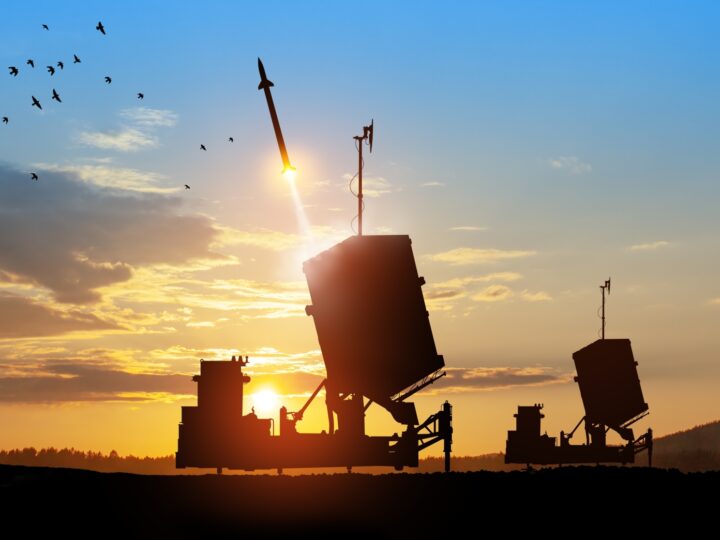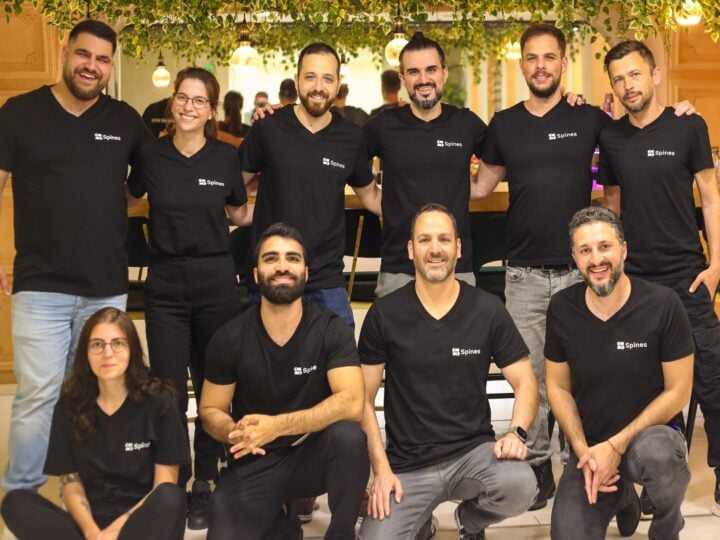“Coexistence” isn’t just an empty slogan for Israeli Arabs like Nasser, a young cancer patient whose days are brightened by a medical clown. It’s about the connections forged by one hand reaching out to another even in difficult times and circumstances.
“He is like a big brother to me,” said Nasser about David “Dush” Barashi, one of the 100 Dream Doctors — professional therapeutic clowns — working alongside the medical teams of 29 Israeli hospitals with measurable results in patient outcomes.
Nasser’s testimony, and Barashi’s caring work in Israel and at disaster areas across the world, was watched by more than 18,000 attendees — including leaders of ISRAEL21c – at the AIPAC Policy Conference in Washington, DC, March 4-6.
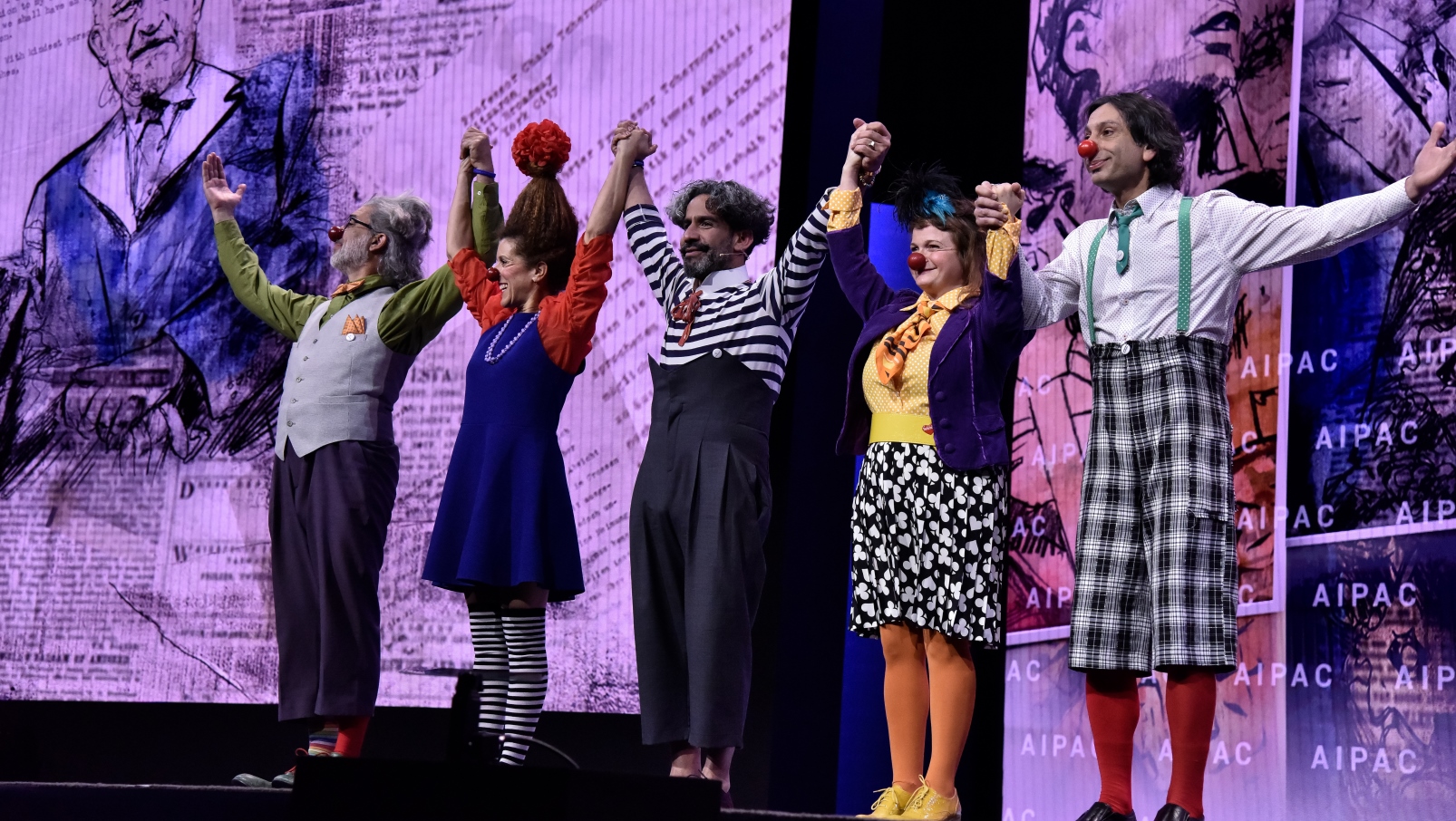
Neither is coexistence a vague concept for Saleem Sharif, a visually impaired young adult paired with a companion from the Israel Guide Dog Center.
Sharif described how learning to work with his service dog, Winston, so completely changed his perception of Jewish Israelis that now he wants to be an ambassador of peace “and speak to people about Muslims and Jews living together without hate.”
Watch here as ISRAEL21c board member Jonathan Baruch speaks to Sharif and other Israeli guide-dog owners at the AIPAC event.
Olive growers unite
Ali Mazen, the Arab community representative of the Agriculture Ministry’s Olive Board, told AIPAC attendees that he believes the five cross-border partnerships helping Israeli, Palestinian and Jordanian olive growers overcome mutual challenges to produce the high-quality oil can lead to economic prosperity for all three populations.
“I hope the olive tree will be what connects all the countries in the Middle East,” Mazen said.
Here, Baruch gets a taste of Israeli olive oil.
These and other real-life examples showed the AIPAC audience some of the constructive developments happening in Israeli society to further warm ties between the people who share the land.
As Hadassah pediatrician Dr. Uri Ilan said in introducing the Dream Doctors, “In Israeli hospitals, worlds collide. Arab doctors treat Jewish patients. Jewish doctors treat Arab patients. A victim of a terror attack is treated down the hall from the attacker. But even with all the complications, Israeli hospitals are a place of hope and innovation.”
Click below to see Baruch’s interview with Dream Doctors.
Innovation Showcase
The AIPAC conference also shed light on the kinds of stories ISRAEL21c features daily: how Israeli water innovation is helping the United States, and why Israel always stands ready to assist other nations in times of crisis, and what the United States and other countries are learning from Israeli expertise in areas ranging from healthcare to agriculture.
Prime Minister Benjamin Netanyahu dedicated a large portion of his speech to the worldwide significance of Israeli precision agriculture technologies.
Dovetailing with that theme, advanced irrigation technology developer CropX was among Israeli startups featured in AIPAC’s always popular Innovation Showcase. CEO Tomer Tzach described how CropX’s soil sensor technology is on a mission to save the world. The units are deployed across the United States helping growers of corn, potatoes, apples and grapes, among other crops.
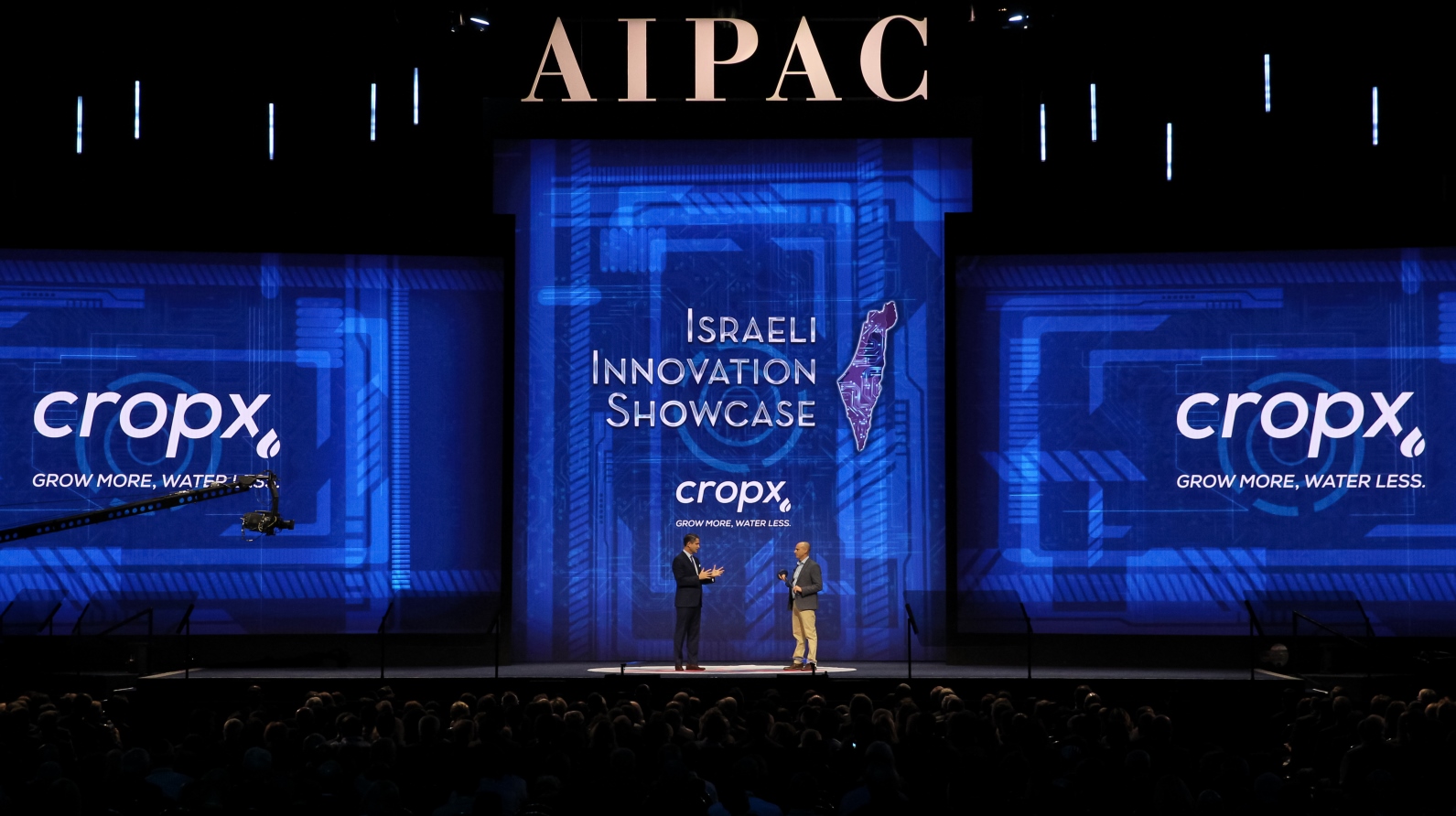
Edgybees was another showcase participant. The Israeli startup’s First Response augmented-reality app has aided emergency teams in the Northern California wildfires and post-hurricane flooding in Florida.
Also featured in the showcase this year was StemRad, an Israeli-American company pioneering personal protective equipment against ionizing radiation exposure from nuclear disasters for first-responders, soldiers and astronauts.
The head of the Israel Defense Force’s Underground Warfare Department was onstage as well to explain how Israeli innovation was put to the test in helping detect underground terror tunnels.
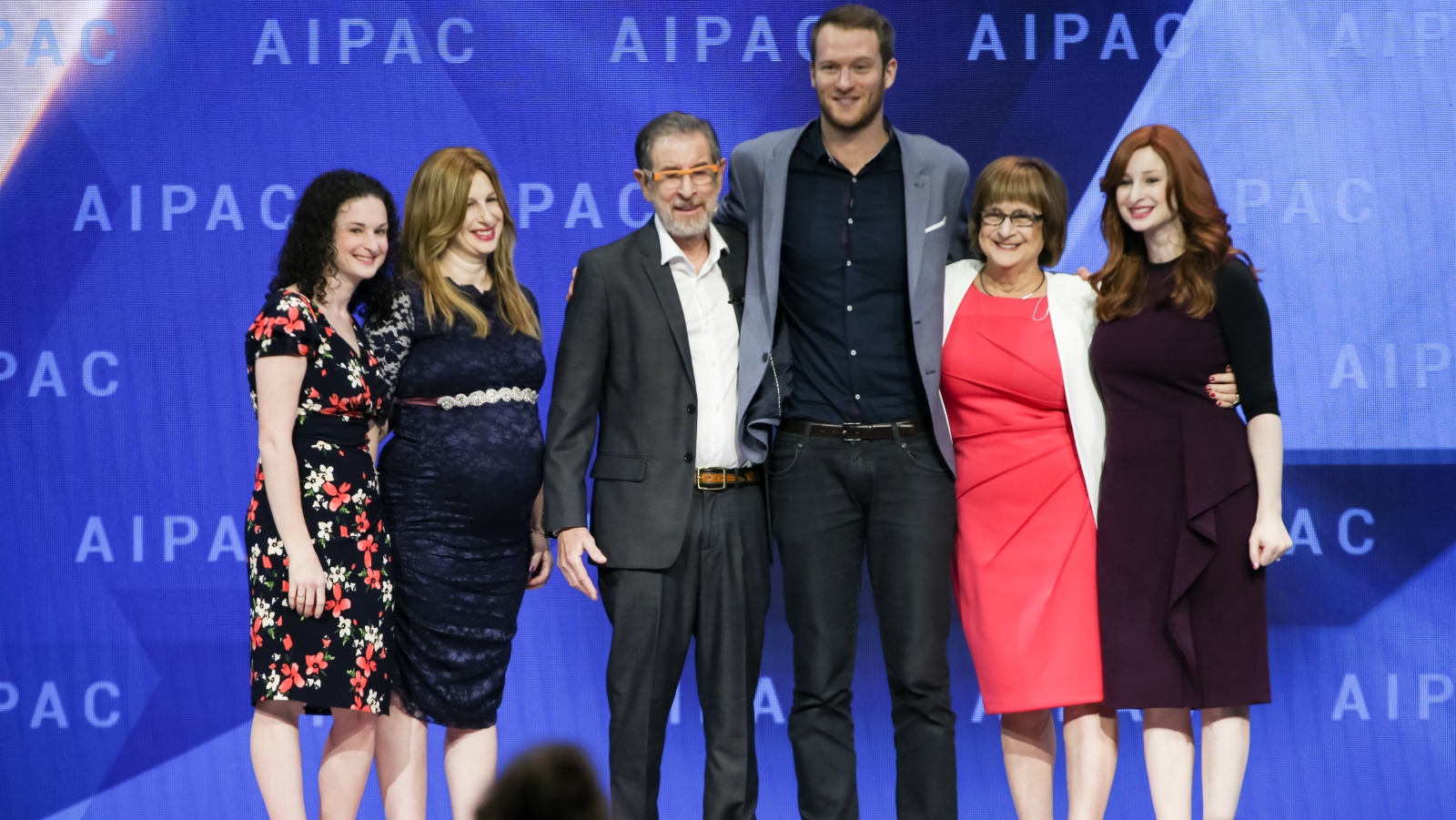
In an especially emotional moment on stage (watch here), Ohio resident Steve Arnow and his family met Gev Blau, the former Israeli combat soldier who donated his bone marrow to save Arnow’s life.
The match was made through the Ezer Mizion Bone Marrow Registry, started in 1998 and now facilitating 30 to 35 transplants each month. More than 90 percent of IDF soldiers voluntarily join the registry – the fifth-largest in the world — to save lives in Israel and abroad.
To see more highlights of startup nation ingenuity on display at the 2018 AIPAC Policy Conference filmed by ISRAEL21c onsite, click here.




